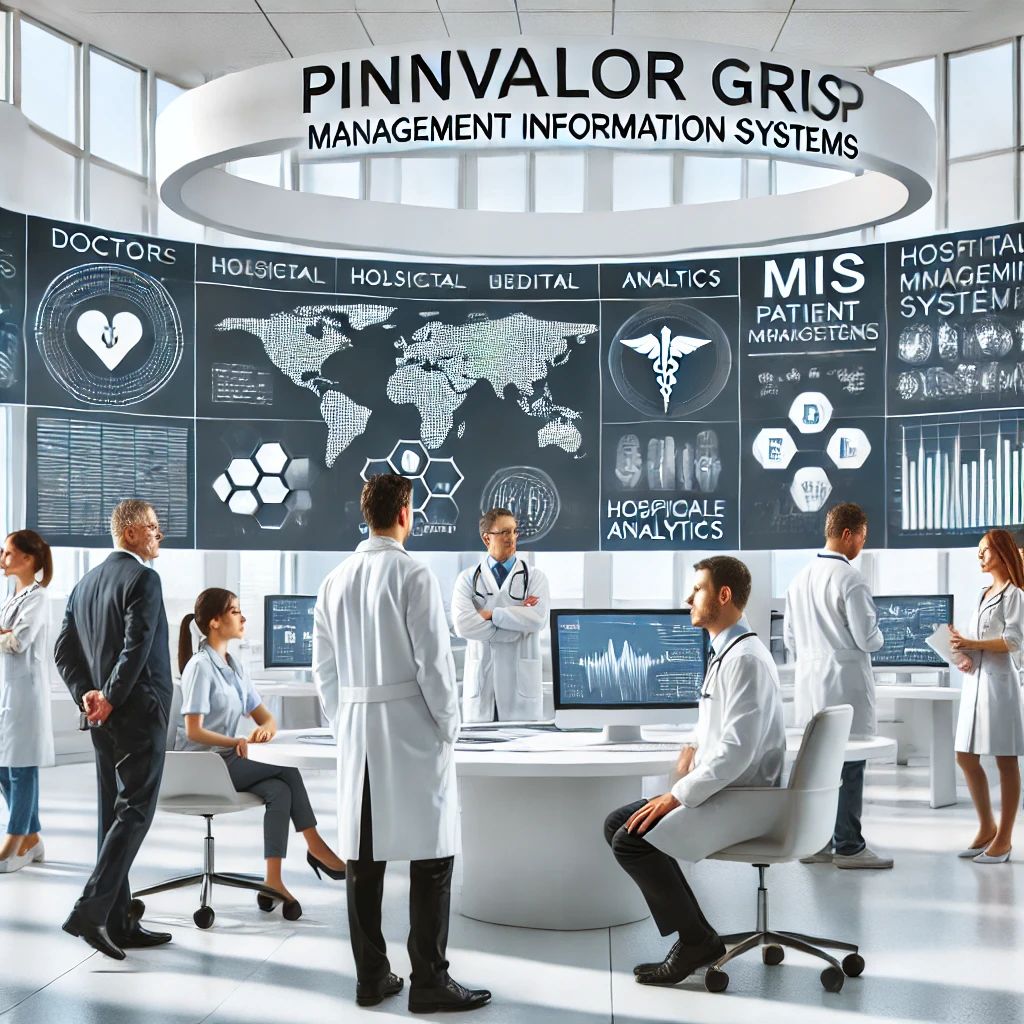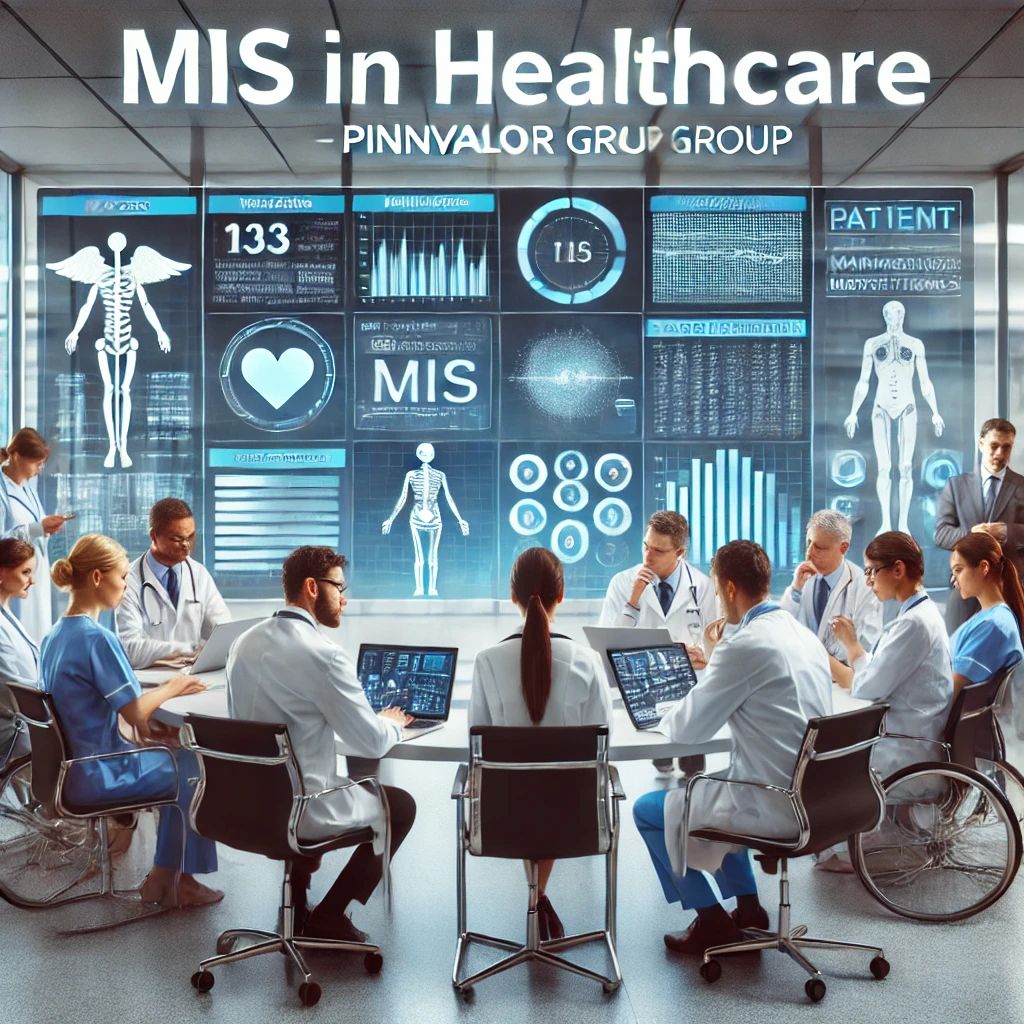
Revolutionizing Healthcare: How MIS Enhances Patient Care and Operational Efficiency
Wanna save lives and cut costs at the same time? The answer lies in Management Information Systems (MIS). In today's fast-evolving healthcare landscape, the integration of MIS is not just an option but a necessity. With an ever-increasing patient load, stringent regulations, and the need for real-time data-driven decisions, hospitals and healthcare providers are turning to MIS to enhance patient care, improve operational efficiency, and drive profitability.
The Role of MIS in Healthcare
Healthcare organizations generate enormous amounts of data daily – patient records, billing details, treatment histories, and diagnostic information. Efficiently managing and utilizing this data is critical for improving service delivery and ensuring seamless hospital operations. MIS plays a pivotal role by integrating different facets of healthcare management, reducing redundancies, and ensuring accurate, real-time information flow across departments.
Key Benefits of MIS in Healthcare:
- Enhanced Patient Care: With digital patient records, doctors can access patient history instantly, reducing the chances of misdiagnosis and enhancing treatment efficiency.
- Operational Efficiency: Automated workflows and real-time reporting eliminate administrative bottlenecks, making hospital operations smoother.
- Cost Reduction: Reducing paperwork and minimizing human errors leads to significant cost savings in hospital management.
- Regulatory Compliance: Healthcare providers must adhere to various regulations, and MIS ensures proper documentation and compliance with government norms.
- Data-Driven Decision Making: MIS enables hospitals to analyze trends, forecast patient inflows, and optimize resource allocation.
- Improved Patient Experience: Faster admissions, streamlined billing, and hassle-free insurance claims enhance the overall patient journey.
Real-Time Market Insight: India’s Healthcare MIS Boom
India's healthcare industry is witnessing a digital revolution, with an increasing focus on technology-driven healthcare management. Government initiatives like the Ayushman Bharat Digital Mission (ABDM) aim to digitize patient records and improve interoperability across healthcare institutions. The demand for electronic health records (EHRs), AI-powered diagnosis, and cloud-based hospital management systems is at an all-time high.
According to NASSCOM, India's healthcare IT market is expected to grow at a CAGR of 18-20% over the next five years, indicating a massive shift towards MIS adoption. Hospitals are investing in smart solutions to improve efficiency, reduce manual intervention, and ensure high-quality patient care.

Case Study: Apollo Hospitals – A Pioneer in Healthcare MIS
One of the best examples of MIS implementation in Indian healthcare is Apollo Hospitals, a leading hospital chain known for its advanced IT-driven approach to healthcare management. Apollo has successfully integrated a robust Hospital Information System (HIS) that connects various departments, ensuring seamless patient data management and enhanced operational efficiency.
How Apollo Uses MIS Effectively:
- Digital Patient Records: All patient data is digitized, allowing instant access to medical history and reducing paperwork.
- AI-Based Predictive Analytics: Apollo uses AI to predict disease patterns and optimize resource allocation.
- Integrated Billing & Insurance: The system automates insurance processing, making the claims process faster and hassle-free.
- Telemedicine & Remote Consultation: The integration of MIS with telemedicine platforms ensures better accessibility to healthcare.
Challenges & Future of MIS in Healthcare
While MIS offers numerous benefits, its implementation comes with challenges such as high initial investment, cybersecurity risks, and resistance to technology adoption. However, the future looks promising, with AI, blockchain, and IoT playing a crucial role in making MIS even more robust and effective.
Key Takeaways
- MIS is revolutionizing healthcare by improving patient care, reducing costs, and enhancing operational efficiency.
- India’s healthcare IT market is on a strong growth trajectory, driven by digital adoption and regulatory push.
- Apollo Hospitals is a prime example of successful MIS integration, leveraging digital solutions for seamless healthcare management.
- Challenges remain, but innovations like AI and blockchain will shape the future of MIS in healthcare.
Final Thought: The Road Ahead
Healthcare is no longer just about treatment—it’s about data-driven, patient-centric, and technology-enabled solutions. Hospitals and healthcare providers who invest in MIS today will lead the industry tomorrow. Whether you're a healthcare professional, administrator, or investor, understanding the power of MIS is crucial for navigating the future of healthcare in India and beyond.
